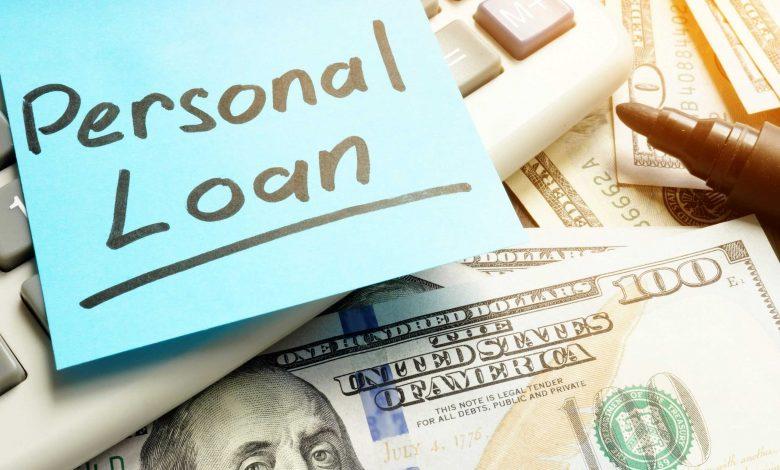Best Personal Loan Lenders – As Low As 4.99% APR Through 2022
Personal Loans and Lending Options for Individuals

This article will discuss the different types of personal loans along with their characteristics. Now days, the credit supply for funding is so great that there are many types of personal loans, each with its advantages and disadvantages. They are usually resorted to in times of financial difficulty, but also for a matter of family or personal budget organization. A personal loan can be considered one that a credit institution grants to a private client, that is, not to a company or to a self-employed person, and that the latter can use freely for what he or she considers best, that is, that is not linked to a specific purpose, such as a home mortgage or car financing. For a better understanding, we will include the different types of personal loans depending on who grants them: traditional banks, credit companies, private lenders or public institutions.
Personal loans from banks
It has been said that bank loans are the classic choice for personal loans. Its advantage may be the security and reliability of powerful entities with a lot of financial muscle, which have sufficient funds to carry out an operation of this type. The wide variety of banks and offers from both banks make it possible to compare and find the most advantageous conditions in each case, although in general the interest charged by these entities is relatively high. The most common expenses to which these loans are dedicated are the studies of the children, the family vacations or the private consumption. One of the great disadvantages of this type of personal loan is the great bureaucracy that they carry and the difficulty of accessing them if certain conditions, sometimes very demanding, are not met. For example, many entities do not grant loans to those who do not have a fixed payroll with a medium-high salary, something that in recent years is increasingly unusual.
Certain Debts Make Loan Options Scarce
Typically credit is not approved for those who have outstanding debts, either with the government or with private companies. And for this, not only do they track the lists of defaulters, but they even cover their backs with respect to those who appear reflected in the CIRBE (Risk Information Center of the Bank of Spain), where people with risk credits are registered, even if they religiously comply with the dues payments. In addition to the classic personal loans, which usually grant a specific amount to be repaid, banks currently offer other forms of financing. For example, credit cards, normally associated with the checking account itself. Or lines of credit, which in practice are credit accounts in which the bank contributes a balance and allows the customer to make use of it, but restoring it at the end of the agreed period, plus the interest generated.
Fast Online Micro Credits from Credit Companies
Private credit companies, such as Credy, are companies specialized in granting immediate online loans. It is a very appropriate type of personal loan for unforeseen expenses, since they are fast, easily accessible and the fees charged are moderate. By speed it is understood just 10 or 15 minutes from the moment in which the personal loans are requested until having it at your disposal in your checking account. Simplicity has to do with the application process: an online form for which no knowledge of economics or finance is needed and that can be filled out from the home computer or from the smartphone via the Internet. They are easily accessible because practically anyone of legal age can benefit from them. And that includes the people who are part of files such as ASNEF, RAI or CIRBE, in this way people can access fast loans with ASNEF. In addition, not having a payroll is not a reason for exclusion, since another source of regular income such as pensions or unemployment benefits can be accredited and thus access fast loans without payroll. Finally, the paperwork is minimal because quick loans are made without collateral, as banks do not usually do in many cases.
Other Types of Personal loans: Private Lenders and Institutions
Private lenders also make personal loans legally. They are natural persons who may have a profession completely different from that of finance, but because they have a comfortable economic position they can afford the luxury of granting loans to other people, always through a contract and often before a notary public. The main disadvantage is the very high interest rates, sometimes bordering on usury. Finally, mention can also be made of certain public institutions, whose functions may include granting personal loans. There the ICO could be mentioned, although only in a very specific case: that of financing renovation works in the home itself. The rest of its credits are intended for companies, freelancers and other public institutions.
Having a Low Credit Score is Not the End of the World
While it can make financial decisions more complex and expensive, people with “bad” credit (typically a FICO score below 630) have options. Taking advantage of them often can have the added benefit of raising your credit score as a reward for strong financial behavior. For example loans. People with low credit scores sometimes think there is no point in applying for a personal loan because there is little chance of getting approved. But that reasoning ignores a recent key change: the rapid growth of available lenders, including those who specialize in services for those with lower credit scores. Here’s a quick look at the different options for getting a loan if you have a low credit score (do you know your credit score?). sign up after logging in).
Who are you going to call?
Make no mistake: The lower your credit score, the more likely you are to pay a higher interest rate on any loan you can get. This is because your low credit score indicates to the bank that you have a higher risk of repaying the loan in full. In an effort to protect the loan (and take the pain out of unpaid loans), banks charge higher interest rates. This is why one of the first questions to consider is whether you need a third-party lender at all. For some people, a loan from a family member may be a viable option, and if your credit score is very low, it may be your only option. Treat the transaction as you would a professional lender, with clearly defined terms (such as the length of the loan, and interest rate) in a written document. And never make a loan agreement that could put your future relationship with that person at risk. If you cannot find a family member to lend you money, another alternative would be to ask them or someone else to sign a loan together. But remember: the guarantor is accepting a legal obligation to repay the loan on his behalf if he does not repay it. Here’s another case where you shouldn’t risk jeopardizing a friendship or family relationship if you can’t repay your loan.
Testing an Online Lender
If those private options are not available, you can look for alternative lenders who offer the lowest rate you can get. Credit unions, for example, can often be a better proposition than traditional banks. And because they are smaller and non-profit organizations working on behalf of their members, you may be able to get lower rates and more personal customer service. A Google search for “credit union” and the name of your city or county should show the credit unions available in your area. Another option is an online peer-to-peer (P2P) lender. P2P works as an online platform that matches you with individual lenders who are real people, not banks. With a P2P lender, you may have a better chance because unlike more traditional lenders, they may consider more than your low credit score to underwrite your loan. A major advantage with P2P and online lenders is that your credit score will generally not be adversely affected if you are simply doing your research and want to see what loan terms you can get. Typically, you will complete a pre-application that involves a “soft” query on your credit report that does not affect your credit score.
But keep in mind that once you formally apply for a loan, lenders will likely require a “hard” inquiry, which can affect your credit score if you have too many difficult inquiries in a short period of time. Reducing credit card debt (also known as debt consolidation) is the main reason people seek agreements with P2P lenders. On the most popular sites, credit card payments account for 60 to 80 percent of all loans. They are significantly lower than your credit card interest rates, saving you money throughout the loan. But interest rates can vary widely. You can get low single-digit rates at times, but they can also go above 30 percent, depending on your credit score, income, and why you want the loan. While these lenders are not faceless banks, they are still investors who are not looking to lose money when people do not repay their loans. At Tons of Cards we consider more than just your credit score and our personal loans start with an interest rate of 5.99%. But remember that does not mean that everyone qualifies for a loan. We take a careful look at the overall financial picture of each loan applicant to make sure they can afford it. We want to help our clients achieve financial well-being, and that includes avoiding too much debt that people can’t pay.
Avoid Payday Lenders
There’s one selling point that you should almost always avoid: Payday loan providers. These lenders charge astronomical fees, sometimes as high as 400 percent, on short-term loans that average around two weeks, and they often require no credit check at all. As bad as you need cash, be very careful not to fall into the never-ending payday loan cycle. We’ll cover payday loans in a future blog post, so stay tuned. If you’re shopping for a loan on the market and you have bad credit, you need to do your research to find both “private” options such as friends and family, and newer online lenders that don’t just focus on credit scores. Then compare different potential lenders, as the platforms will require varying credit score minimums, loan terms, and most importantly, fees that can lower your spending or debt reduction ability.

